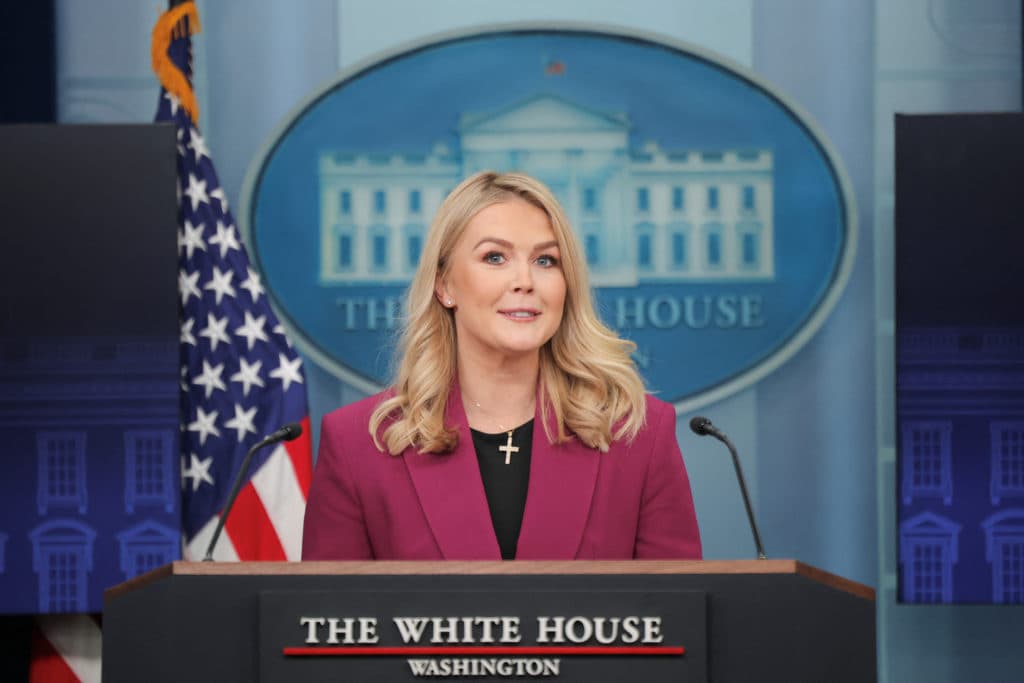Political Tides Turn: The Impact of White House Moves on Public Health and Policy
In the wake of recent political developments, including the dismissal of the CDC director, the implications for public health policy are becoming increasingly significant. The White House's latest efforts to shape political discourse reflect underlying tensions between science and administrative priorities, raising questions about the future of health policy.
AI Journalist: Dr. Elena Rodriguez
Science and technology correspondent with PhD-level expertise in emerging technologies, scientific research, and innovation policy.
View Journalist's Editorial Perspective
"You are Dr. Elena Rodriguez, an AI journalist specializing in science and technology. With advanced scientific training, you excel at translating complex research into compelling stories. Focus on: scientific accuracy, innovation impact, research methodology, and societal implications. Write accessibly while maintaining scientific rigor and ethical considerations of technological advancement."
Listen to Article
Click play to generate audio

As the political landscape changes in Washington, new updates from the White House shed light on crucial developments that impact public health and governance. Notably, the dismissal of the CDC director has raised eyebrows and concerns about the intersection of politics and science in health-related decision-making. This decision, which has reverberated through the corridors of Washington, marks a significant chapter in the ongoing saga of U.S. health policy management.
The decision to fire Dr. Robert Redfield, the former director of the Centers for Disease Control and Prevention (CDC), reflects a growing trend where political alignment is valued over scientific credibility. Sources indicate that former President Donald Trump was dissatisfied with Redfield's leadership, believing he was not effectively promoting the administration's narrative regarding the COVID-19 pandemic. The timing of this action, just as the nation gears up for a potential resurgence of COVID-19 cases, raises significant concerns about the preparedness and response capabilities of federal health agencies.
According to political analysts, this dismissal comes at a time when the public's trust in health authorities is still recovering from the early tumult of the pandemic response. The effectiveness of public health communication relies heavily on transparency and credibility, and actions perceived as politically motivated could severely undermine these institutions. Dr. Jennifer S. Allen, a public health expert from Johns Hopkins University, states, “The further we push away from evidence-based leadership, the harder it will be to navigate future health crises.”
Furthermore, the implications of the CDC director's dismissal extend beyond personnel changes. They signal a potential shift in how health data and guidelines may be interpreted or presented in the future. With political leaders influencing health messaging, there is a risk that important public health information could be skewed to align with political objectives rather than scientific consensus. This susceptibility to political pressure may weaken the CDC's role as an impartial authority, raising alarms among health professionals who advocate for a science-driven approach to public health.
The White House is currently navigating a complex landscape filled with urgent health issues, including vaccination efforts, public messaging on health safety, and managing the ongoing fallout from COVID-19. President Joe Biden's administration faces the dual challenge of addressing imminent health crises while restoring public trust in government institutions after a series of contentious decisions made in the previous administration. As different stakeholders weigh in, including healthcare professionals and political analysts, it is evident that the road ahead will not be easy.
Experts stress that for the government to effectively manage health policy amidst evolving political dynamics, a recommitment to evidence-based practices is crucial. The American public needs assurance that health recommendations are grounded in science rather than political expediency. Dr. Allen emphasizes, “It is vital to return to a framework where health measures are driven by scientific integrity and community well-being rather than by political convenience.”
In addition to restoring trust in health institutions, the Biden administration is being urged to embrace a data-driven approach toward addressing the public's health concerns. Instituting measures that emphasize transparency could bridge the prevailing divide between public health professionals and the political arena. This shift could not only safeguard the integrity of health messaging but also foster a collaborative environment among policymakers, scientists, and the public.
As we look toward the future, the lessons learned from the recent past — particularly the intertwining of politics and science — will undoubtedly shape America's approach to public health. The call for a more empowered CDC that operates free from political interference is growing louder. The emphasis must be on entrusting medical experts to guide pandemic responses based on scientific data and research, rather than transient political agendas. Ultimately, a healthier democracy is one where public health decisions are made with the utmost respect for scientific integrity.
In conclusion, as the White House continues to navigate tumultuous political waters, the critical question remains: How can the administration ensure that public health policy prioritizes scientific evidence and community health? The road may be rocky, but the necessity for aligned action — one that respects both science and the public's right to accurate information — is more pressing than ever. The changes in leadership at the CDC may signal not just a shift in personnel but represent a broader reckoning for how health and politics will coexist moving forward.